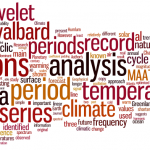Guest commentary by Mark Boslough*
The Third Santa Fe Conference on Global and Regional Climate Change was held during Halloween week. It was most notable for the breadth of opinion — and the span of credibility — of its speakers. I have long complained about the lack of willingness of most contrarians to attend and present their arguments at mainstream scientific conferences. After three years of convening climate-related sessions at AGU, I have yet to receive an abstract that argues against anthropogenic global warming. Such presentations can usually only be seen at conferences held by the Heartland Institute. There isn’t much chance of a mainstream scientist attending a meeting organized by a political think tank known for its anti-science activism, so opportunities for interaction between the groups are rare.
[Read more…] about Climate cynicism at the Santa Fe conference

